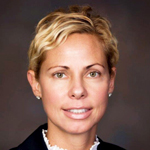Before joining EmblemHealth in 2002 as treasurer and vice president of investor relations, Arthur “Art” Byrd had worked in the insurance industry in various roles for years. This, he says, enabled him to learn every aspect of the business. Byrd’s wide-ranging knowledge was especially useful when it came to redirecting New York’s leading health insurance and wellness company, which encountered significant premium-rate pressure during the past few years, accounting for approximately $150 million in reduced revenue. While getting EmblemHealth back on track, Byrd was promoted to CFO in 2012, just in time to gear up for the game changer known as the Affordable Care Act. Here, the CFO of the $10 billion health insurer discusses why it’s an interesting time to be working in health care.

There’s a lot going on in health care. What makes you excited about being in the industry right now?
Art Byrd: Well, it’s a challenging and dynamic time. I’ve been in the industry in one way or another for more than 20 years, and things changed more in 2010 than they have over the course of my whole career up to this point. What we have seen through the years is health-care costs spiraling faster than inflation.
Tell me about how health-care reform has impacted EmblemHealth.
Byrd: We’ve had to take a step back and think about how we’re going to balance our costs. One way to manage them is by negotiating better contracts. We no longer accept or can afford a 10 percent medical cost increase over the prior year. It’s about working smarter so our provider partners are successful and we’re successful. Also, there’s no savings too small from an administrative standpoint. Even though we’re spending $1 billion each year, we’re looking for ways to save in every area, even if it’s $100,000 at a time. We’re seeing operating margins below one percent on a consolidated basis. Figuring out how to manage medical and administrative expenses in an ever-changing environment is a constant challenge.
How are you leading the finance team to respond to recent changes in order to ensure the organization is prepared?
Byrd: We were well prepared for the health-exchange environment. New York had its own exchange, which put us ahead of the curve—and we took advantage of that. We knew we’d be more prepared since we had a diversified portfolio, and we were diversified across all lines of business. It did transform how we look at our financial statements. Now, we review the information to foresee where we can add value. We’re looking to see how each product is performing. What’s really important to us in the finance department is being a better business partner and being transparent with our internal business-owner partners. We break down results by product for everyone who needs to know what’s going on.
Why is it so important to for your finance team be a productive business partner?
Byrd: We’re in charge of extremely valuable financial information that the business needs to know in order to have an understanding of how each and every product is performing—and we have about 100 products that we sell. Every bit of information in our product lines results in financial outcomes that have the power to greatly impact the business. Inherently, this makes us an extremely valuable business partner, but what I’m interested in is going the extra mile. I’d like to think I empower our finance team to develop information in a timely fashion so that, as an organization, we can make smart decisions that add value. We have more than 30,000 health-care exchange members, but it’s too early to know the risk pool of new members. When finance and actuarial work together we can shift our focus and present findings that will help the company create programs to improve the health of our riskiest population. Everything we do is in an attempt to work smarter as a team.

